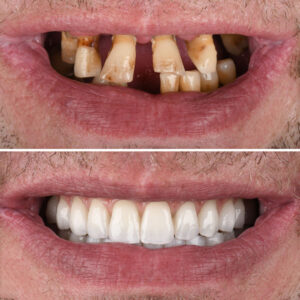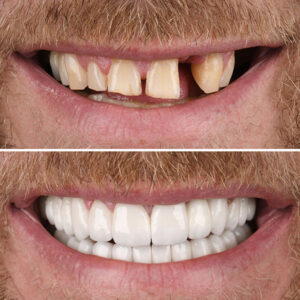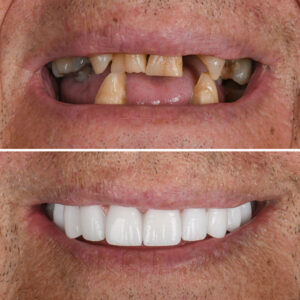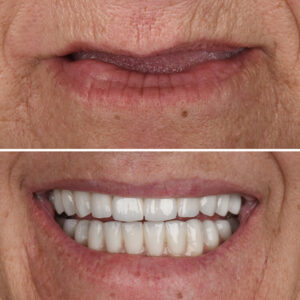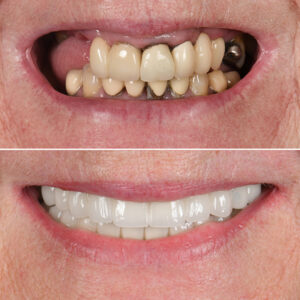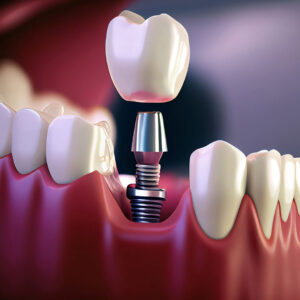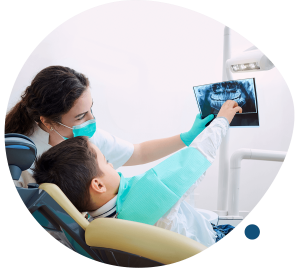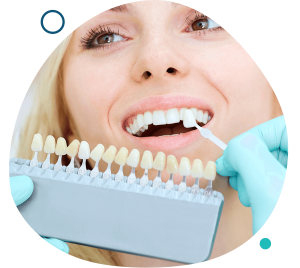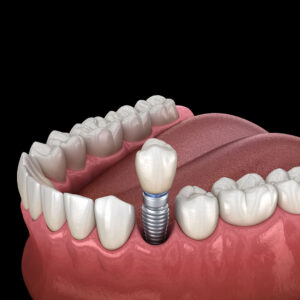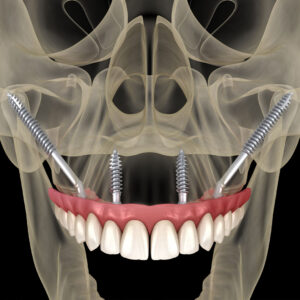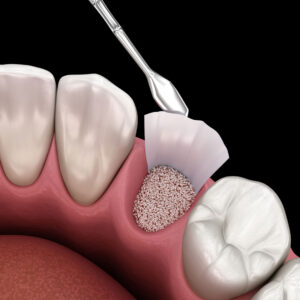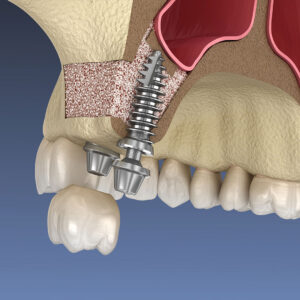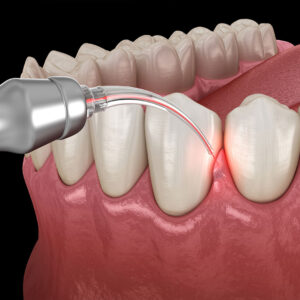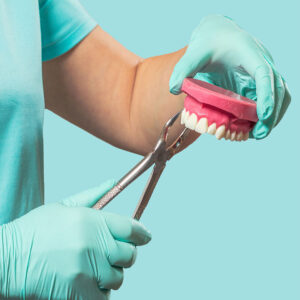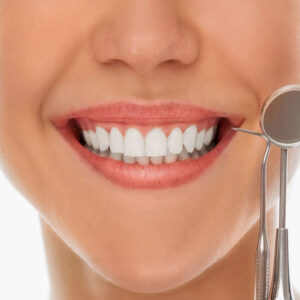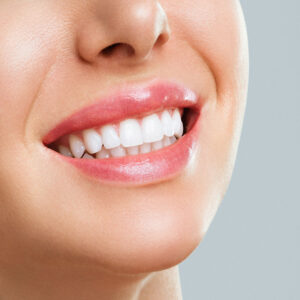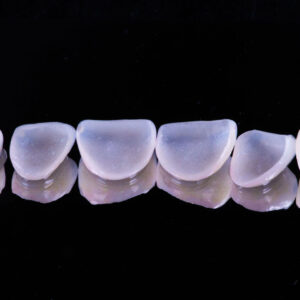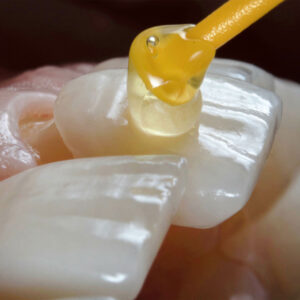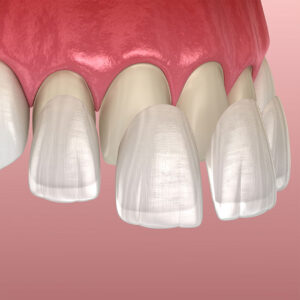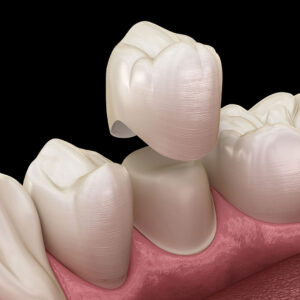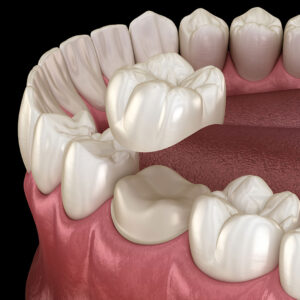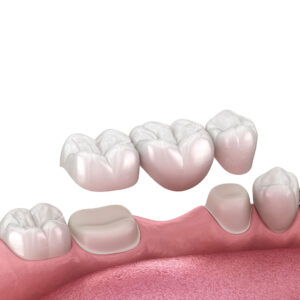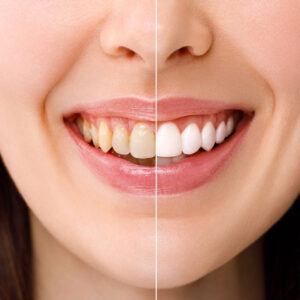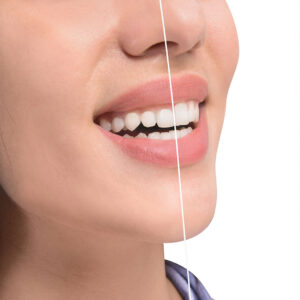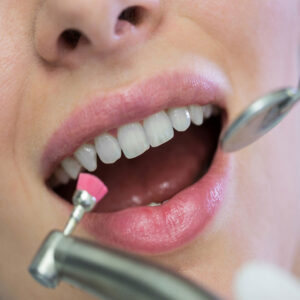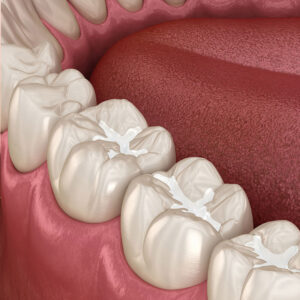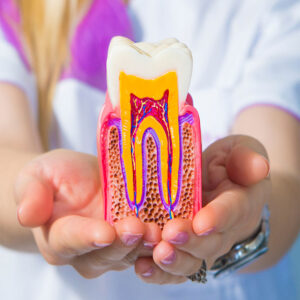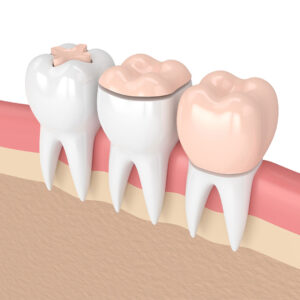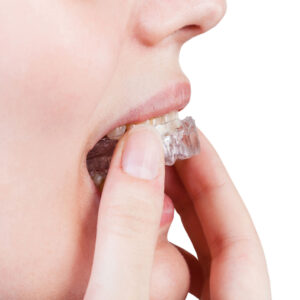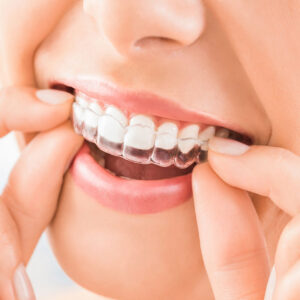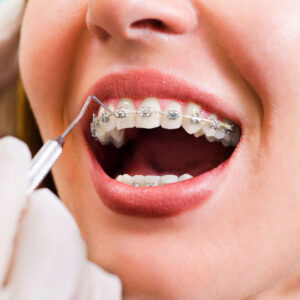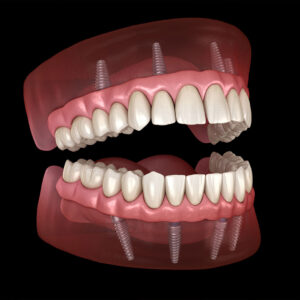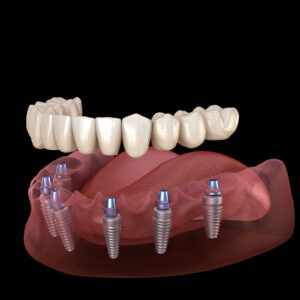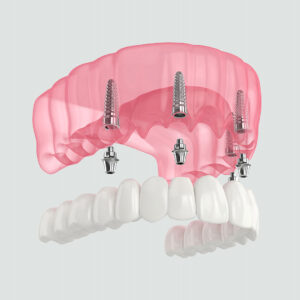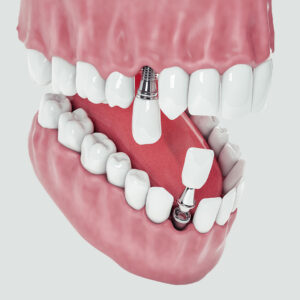
Tooth extraction is a routine dental procedure involving the careful removal of a tooth from its socket. While it may sound daunting, tooth extraction is often a necessary and beneficial solution for various dental issues, including severe decay, damaged teeth, overcrowding, or the preparation for orthodontic treatment.
The tooth extraction process begins with a comprehensive dental examination, often accompanied by X-rays to assess the tooth’s condition and its relationship with surrounding structures. Local anesthesia is administered to ensure a painless experience.
Simple extractions involve loosening the tooth with specialized instruments and gently removing it. For more complex cases, such as impacted wisdom teeth, surgical extraction may be required. Post-extraction care instructions are provided to support optimal healing.
Tooth extraction is recommended for various reasons, including:
- Severe Decay or Damage: When a tooth is extensively decayed or damaged beyond repair, extraction becomes a viable option to prevent further complications.
- Overcrowding: Tooth extraction may be necessary to create space in the mouth, especially when teeth are overcrowded and impacting oral health.
- Impacted Wisdom Teeth: Wisdom teeth that don’t have sufficient space to emerge properly may cause pain, swelling, or infection, necessitating extraction.
- Orthodontic Treatment: In some cases, tooth extraction is part of orthodontic treatment plans to achieve proper alignment.
Dentists do their best to repair teeth to address dental conditions. Unfortunately, there are some circumstances that put a tooth beyond saving. Patients can experience a bad taste in their mouth, wobbly teeth, pain and sensitivity. These symptoms may indicate an infection requiring tooth extraction in Turkey.
Young people may experience a painful or improper wisdom tooth appearance. Wisdom teeth can sometimes grow sideways or angularly into neighbouring teeth.
Wisdom teeth are naturally harder to clean, which can lead to cavities, sensitivity, and root problems. For these orthodontic and oral hygiene reasons, it is healthy to have wisdom teeth removed.
To keep a healthy oral status, problem teeth should be extracted as soon as possible. Dentares has 2 full-time Maxillofacial surgeons so you can feel comfortable putting your faith in highly experienced specialists. Local anesthesia is given for a pain-free treatment.
Can I have sedation for tooth extraction?
For all tooth extraction treatments, local anaesthesia is provided for a painless experience. Patients with some dental anxiety can request sedation but unfortunately Dentares is only able to provide general anaesthesia.
Patients are required to meet certain criterias in their blood work and a full medical history must be given prior. There is a greater health risk for general anaesthesia so it is recommended to continue with local anaesthesia.
How is tooth extraction performed in Turkey?
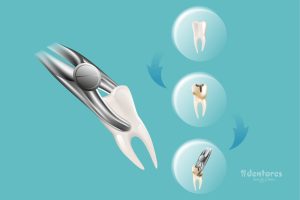
The patient receives a complimentary panoramic x-ray, oral examination and consultation with our Head Physician and Maxillofacial surgeon. During the consultation, the x-ray and intraoral results will be discussed to provide the patient with a treatment plan. If a tooth requires extraction, this will be decided here.
The patient relaxes in the dental chair and within sterile conditions. The surgeon and assistants sterilise their hands, wear gloves, masks, surgical gowns, hair nets and sterilise the patient’s mouths, inside and out. The treatment may begin.
The maxillofacial surgeon applies local anaesthesia for a pain free operation. The tooth is then pulled free. If the tooth proves difficult to remove, it can be cut into sections for easier removal.
Dead teeth tend to be the most difficult to extract because the tooth becomes brittle and prone to fracturing during the treatment.
Once the tooth has been removed, the doctor may place bone graft or an implant to the socket based on the treatment plan. The gingiva (gum) is then sutured together with dissolvable stitches.
The duration of the tooth extraction process in Turkey varies based on factors such as the complexity of the extraction and the number of teeth involved.
Simple extractions are usually swift, while surgical extractions or multiple extractions may take more time. The efficiency of dental procedures in Turkey ensures a streamlined process without compromising on quality.
The cost of tooth extraction in Turkey is influenced by factors such as the type of extraction, the clinic’s location, and the expertise of the dental professionals.
Turkey is renowned for offering cost-effective rates for high-quality dental care, making it an attractive destination for individuals seeking affordable and efficient tooth extraction procedures.
In conclusion, tooth extraction in Turkey is a straightforward and beneficial solution to various dental concerns. From decayed teeth to impacted wisdom teeth, the process is designed to prioritize patient comfort and oral health.
Explore the possibilities of tooth extraction in Turkey to reclaim your comfort and embark on a journey toward optimal oral well-being. Consult with our experienced dental professionals to ensure a smooth and effective tooth extraction experience.
Tooth Extraction
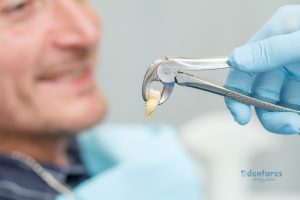
Tooth extraction is the surgical removal of a tooth due to decay, damage or infection. Teeth are also removed for aesthetic reasons and to avoid future issues arising.
Tooth extraction in Turkey
Dentists do their best to repair teeth to address dental conditions. Unfortunately there are some circumstances that put a tooth beyond saving. Patients can experience a bad taste in their mouth, wobbly teeth, pain and sensitivity. These symptoms may indicate an infection requiring tooth extraction in Turkey.
Young people may experience a painful or improper wisdom tooth appearance. Wisdom teeth can sometimes grow sideways or angularly into neighbouring teeth.
Wisdom teeth are naturally harder to clean, which can lead to: cavities, sensitivity, and root problems. For these orthodontic and oral hygiene reasons, it is healthy to have wisdom teeth removed.
To keep a healthy oral status, problem teeth should be extracted as soon as possible. Dentares has 2 full-time Maxillofacial surgeons so you can feel comfortable putting your faith in highly-experienced specialists. Local anaesthesia is given for a pain-free treatment.
Can I have sedation for tooth extraction?
For all tooth extraction treatments, local anaesthesia is provided for a painless experience. Patients with some dental anxiety can request sedation but unfortunately Dentares is only able to provide general anaesthesia.
Patients are required to meet certain criterias in their blood work and a full medical history must be given prior. There is a greater health risk for general anaesthesia so it is recommended to continue with local anaesthesia.
How is tooth extraction performed in Turkey?
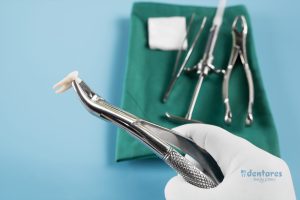
The patient receives a complimentary panoramic x-ray, oral examination and consultation with our Head Physician and Maxillofacial surgeon. During the consultation, the x-ray and intraoral results will be discussed to provide the patient with a treatment plan. If a tooth requires extraction, this will be decided here.
The patient relaxes in the dental chair and within sterile conditions. The surgeon and assistants sterilise their hands, wear gloves, masks, surgical gowns, hair nets and sterilise the patients mouths, inside and out.
The treatment may begin. The maxillofacial surgeon applies local anaesthesia for a pain free operation. The tooth is then pulled free. If the tooth proves difficult to remove, it can be cut into sections for easier removal.
Dead teeth tend to be the most difficult to extract because the tooth becomes brittle and prone to fracturing during the treatment.
Once the tooth has been removed, the doctor may place bone graft or an implant to the socket based on the treatment plan. The gingiva (gum) is then sutured together with dissolvable stitches.
FAQ
Frequently asked questions about Dental Implants in Turkey
Patients are recommended plenty of rest, soft foods and regular oral hygiene for 3 days; to protect the site from food particles and bacteria.
After 3-4 days, the sensitivity has mostly resided. 7-10 days post-treatment, the area has clotted and the stitches are starting to dissolve. At 2 weeks, the extraction socket is mostly healed but you can still experience sensitivity. After 3-4 weeks the socket has fully healed.
It’s natural and expected to experience minor bleeding, bone graft material excrement from the area, and sensitivity during your recovery. If you develop a bad taste in your mouth, pus, or increased pain, contact your doctor for a check-up.
Patients should follow the advice of the surgeon post extraction treatment for the best healing and symptom reduction. A course of antibiotics is prescribed as a preventative measure against infection, as well as pain medications and mouthwash. Take the medication strictly to receive the benefits. Use the pain medication even if you aren’t experiencing much pain as it can relieve inflammation and allow blood flow to the area.
Stick to a diet of soft foods to avoid injury. After about 1 month patients can introduce hard foods into their diet.
Tooth extraction cost in Turkey can vary if the patient has an infection, if bone graft is required, and if an implant is applied to the extraction socket as part of the treatment plan. Contact our dental team for more information and a quotation.
Provided that the patient has no signs of infection, a tooth can be extracted and an implant can be placed immediately. This is confirmed by a panoramic x-ray and intraoral examination firstly. To read more about implant technology, head over to our dental implants page here.
More DentiCare Services
Seamlessly visualize quality intellectual capital without superior collaboration and idea-sharing. Holistically pontificate installed base portals after maintainable products


